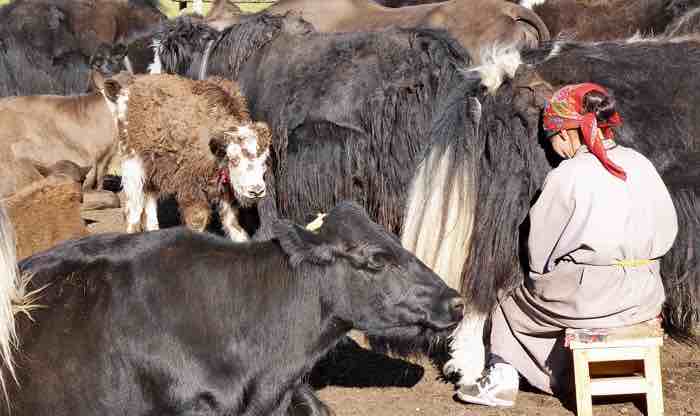
Archeologists once relied solely on artifacts, such as skeletal remains, fossils and pottery sherds, to learn about past species and cultures. Today’s scientists can also study ancient proteins to paint a more complete picture of the people who lived at archeological sites, and the plants and animals they raised and ate, according to an article in Chemical & Engineering News (C&EN), the weekly newsmagazine of the American Chemical Society.
For the past couple of decades, scientists have been sequencing ancient DNA to uncover information about ancestral humans and other animals. However, DNA isn’t very stable over long periods of time and cannot be recovered from many ancient remains, Senior Correspondent Celia Henry Arnaud writes. In contrast, proteins are hardier: For example, scientists have recovered and analyzed proteins from an approximately 1.77-mllion-year-old rhinoceros tooth. To identify ancient proteins, most researchers rely on mass spectrometry, using data from this technique to search protein databases. However, they face challenges, such as protein degradation, contamination of samples with modern proteins and matching mass spectral data to information in a modern protein database.
Despite these challenges, researchers have made intriguing discoveries about the lives and diets of ancestral humans. For example, Jessica Hendy at the Max Planck Institute for the Science of Human History extracted and analyzed proteins from ceramic vessels unearthed in Turkey, revealing that the pots were used to prepare grains, legumes, dairy products and meat. To study how the raising of animals for milk spread across the globe, Christina Warinner, also at the Max Planck Institute, analyzed dairy proteins in the dental plaque of ancient Mongolians, finding that they consumed dairy products long before the first known genetic mutations for lactose tolerance. In this way, the study of ancient proteins can provide information not available by solely looking at DNA.
“
Ancient proteins tell tales of our ancestors”
American Chemical Society——
Bio and Archives
American Chemical Society, ACS is a congressionally chartered independent membership organization which represents professionals at all degree levels and in all fields of chemistry and sciences that involve chemistry.
 Archeologists once relied solely on artifacts, such as skeletal remains, fossils and pottery sherds, to learn about past species and cultures. Today’s scientists can also study ancient proteins to paint a more complete picture of the people who lived at archeological sites, and the plants and animals they raised and ate, according to an article in Chemical & Engineering News (C&EN), the weekly newsmagazine of the American Chemical Society.
Archeologists once relied solely on artifacts, such as skeletal remains, fossils and pottery sherds, to learn about past species and cultures. Today’s scientists can also study ancient proteins to paint a more complete picture of the people who lived at archeological sites, and the plants and animals they raised and ate, according to an article in Chemical & Engineering News (C&EN), the weekly newsmagazine of the American Chemical Society.